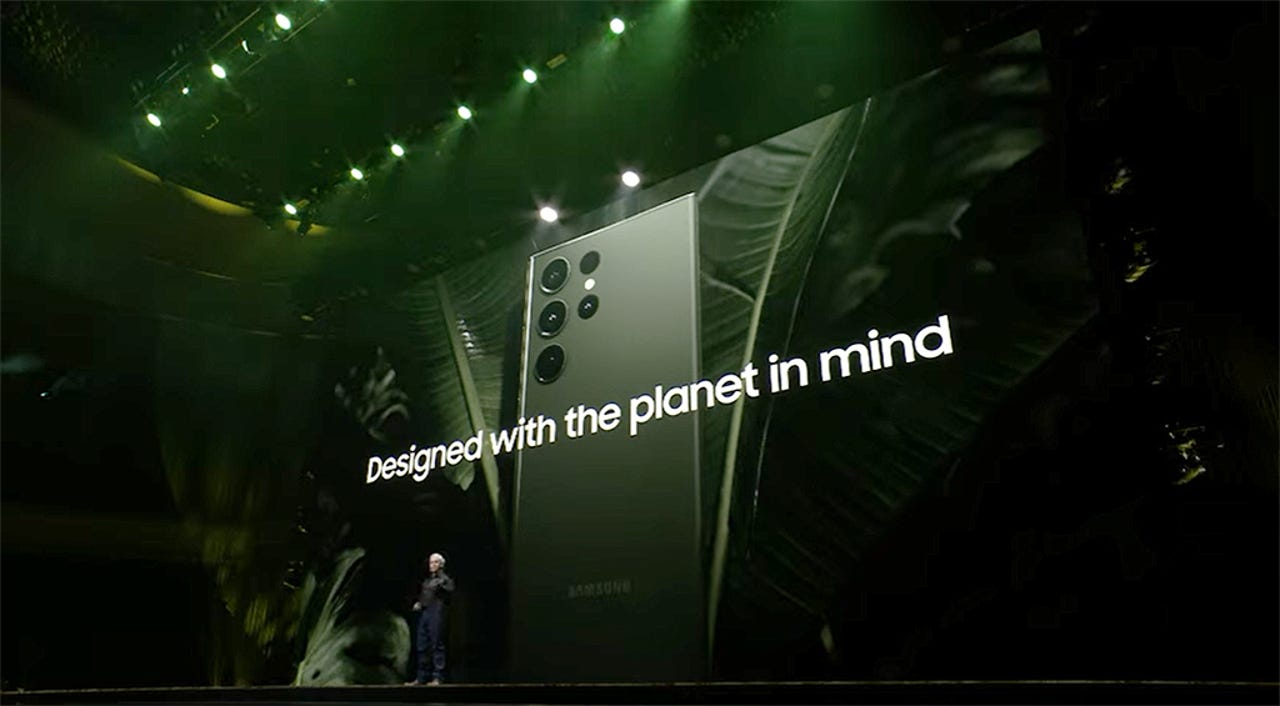
After CES 2023 in January, the next date marked on tech watchers’ calendars was February 1, when Samsung held its first Galaxy Unpacked event of the new year. It followed the usual cadence for such things: rumors and leaks, date confirmation, and the event itself (in person this time, as well as virtual). In the future, we will see the reviews of new devices and the reaction as they find their way into the hands of users. Rinse and repeat, annually.
In years past, many users would have dreamed of upgrading to the latest smartphone, tablet or laptop at the first opportunity. But nowadays, several factors combine to curb such enthusiasm. Chief among them is the recent global economic downturn, which has led to lower consumer demand for new devices.
In 2022, global smartphone shipments fell 12% to 1.2 billion units, a 10-year low, according to analyst firm Canalys. Although Samsung retained the top spot with 22% of the market, the company saw a sharp 17% year-over-year drop in shipments in the fourth quarter.
Despite this bleak overall picture, Canalys research analyst Le Xuan Chiew noted that “Samsung is [also] maintain its focus on profitability by strengthening its high-end portfolio and creating a high-end niche segment through its Fold series.” This view was endorsed by Samsung President and Head of Mobile Experience Business, TM Roh, who told Galaxy Unpacked reporters that demand for premium model products – the Galaxy S23 series and upcoming Fold devices – is expected to increase by 10% this year.
Also: Here’s everything Samsung announced at Unpacked 2023
The global PC market also saw a decline in 2022, down 16% to 285.1 million units and down 29% to 65.4 million units in the fourth quarter, according to Canalys. Laptops fared particularly poorly, down 19% year-on-year and 30% in the fourth quarter. “As expected, the global PC market faced further headwinds in the fourth quarter to complete what has been a challenging 2022,” said Ishan Dutt, senior analyst at Canalys.
Of course, consumers and businesses may well start buying new devices again once economic conditions improve again, likely in late 2023 and 2024. However, there is another factor that could have a lasting effect on consumer behavior. purchase, namely sustainability.
Events like Galaxy Unpacked naturally tout the benefits of new designs, faster processors, smarter, higher-resolution cameras, and the like. But buyers are also increasingly interested in maximizing the lifespan of their existing devices for environmental reasons – to conserve the resources that make them up and to dispose of end-of-life devices responsibly. Many people will hold onto their phone until a combination of accumulated damage, battery health issues, and a lack of operating system or security updates forces them to upgrade.
Big tech companies like Samsung are well aware of this, which is why there was an important sustainability message at Galaxy Unpacked. Here is Mark Newton, Head of North America Corporate Sustainability at Samsung, speaking from the Unpacked stage: “We designed the Galaxy S23 series with the planet and you in mind. for the product to manufacture the packaging from, how long it maintains its best performance.”
The Galaxy S23 Ultra increases the use of recycled materials, such as plastic, glass and aluminum, from six internal components in the Galaxy S22 Ultra to 12 internal and external components. It also uses Corning Gorilla Glass Victus 2 with 22% recycled glass, comes in 100% recycled packaging, and will get four generations of OS upgrades and five years of security updates. Samsung also said that “portions of the Galaxy Book 3 Ultra and Pro series have been constructed from recycled plastics that utilize ocean-discarded fishing nets while eliminating all plastics in the box.”
So you might not want to shell out more than $800 for a Galaxy S23 smartphone or more than $1,250 for a Book 3 series laptop just yet, but Samsung is trying to reassure you that when you do, you can buy with a better environmental conscience.
Another key message from major manufacturers, like Samsung, with extended wallets is the value of buying into its ecosystem. Again, you might not want to buy a Galaxy Book 3 laptop right away, but when you do, there are a range of other products and features that can enhance your productivity, at work or at home. Samsung calls this the “multi-device connected experience”.
Also: The best green phones: Sustainable and eco-friendly smartphones
For example, with Link to Windows installed on your Galaxy phone and Microsoft Phone Link on your Galaxy Book laptop, you can use the Recent Websites feature to transfer web browsing sessions (on Samsung Internet browser only) from a phone to a PC, or use Instant Hotspot for one-click access to your phone’s Internet connection from your laptop. Samsung Multi Control lets you control Galaxy tablets and phones (with the correct One UI version installed) via the Book 3 laptop’s keyboard and trackpad, with copy/paste and drag and drop support , while Second Screen lets you use a Galaxy Tab S7 or S8 tablet as a secondary display for your Book 3 laptop. And with Expert RAW installed on your Galaxy smartphone, you can automatically transfer RAW images taken on the phone to your laptop to edit them with Adobe Lightroom.
Samsung is far from alone in promoting its sustainability credentials and the added value of buying across its device ecosystem, and we’re going to hear a lot more of that from major manufacturers in the future. coming. Just tune into the next big product launch event and see.
